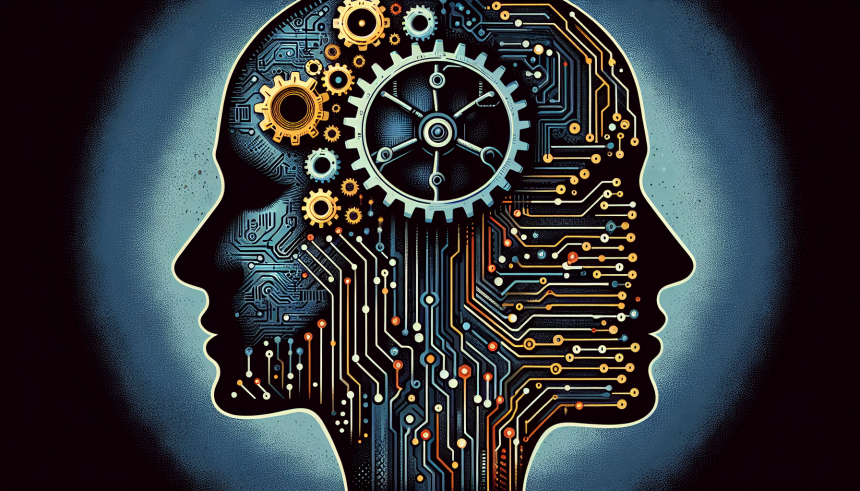The Importance of Defining Knowledge in AI Contexts
Understanding Knowledge in AI
Knowledge in AI contexts is defined as the structured information that an AI system processes to make informed decisions or predictions. This definition extends to data, facts, theories, interpretations, and understanding that can be utilized for the enhancement of machine learning models, natural language processing, and other AI functions. Distinguishing between various types of knowledge—explicit, tacit, procedural, and declarative—is vital for the development of effective AI systems.
Categories of Knowledge
-
Explicit Knowledge: This refers to information that can be easily articulated, documented, and shared, such as databases, textbooks, and online articles. In AI systems, explicit knowledge is often represented in structured forms for algorithms to process.
-
Tacit Knowledge: This encompasses knowledge that is difficult to transfer through writing or verbalizing. It is often subconscious and learned through personal experience. For AI, capturing tacit knowledge remains a challenge, requiring innovative methods of extraction and representation.
-
Procedural Knowledge: This type involves knowing how to perform specific tasks, often associated with skills and processes. In AI contexts, procedural knowledge enables autonomous systems to execute complex tasks based on learned behaviors.
-
Declarative Knowledge: This includes facts and information that can be verified. In an AI framework, declarative knowledge forms the foundational layer of data that informs decision-making processes.
The Role of Knowledge Representation
Knowledge representation plays a critical role in AI by allowing systems to emulate human-like understanding. Techniques such as semantic networks, frames, and ontologies are employed to model knowledge effectively. Semantic networks represent information in a graph structure, facilitating relationships between concepts. Frames help in organizing related knowledge effectively, while ontologies provide a formal representation of a set of concepts within a domain and their relationships.
Different knowledge representation methods enhance machine learning algorithms’ capabilities by providing them with the contextual background needed to understand and interpret data accurately.
The Impact on Machine Learning
Defining knowledge in AI directly influences machine learning (ML) processes. Better-defined knowledge allows for superior feature selection, leading to more relevant analyses and improved model outcomes. By clarifying what data signifies, ML models can generalize from the training phase to real-world applications more efficiently.
For instance, when training a model to recognize images, the clarity in labels and characteristics of those images (like age, gender, emotion, and actions) directly contributes to the model’s performance accuracy. Misinterpreted labels or poorly defined knowledge can significantly degrade the model’s utility.
Knowledge Graphs and Their Importance
Knowledge graphs have emerged as a critical component in AI systems. They represent information in a graph format that captures the relationships between different entities, allowing for a more nuanced understanding of context. By utilizing knowledge graphs, AI applications can draw connections across vast datasets, leading to richer insights and better user experiences.
In applications like search engines, knowledge graphs enhance query results by understanding user intent and presenting information that is contextually relevant. This exemplifies the significance of defining knowledge in AI, as the quality and structure of knowledge directly shape the user experience and information retrieval efficiency.
Ethical Implications of Knowledge Definition
The definition of knowledge in AI also carries significant ethical implications. When knowledge is improperly defined, AI systems may perform biased or incorrect analyses. This can lead to unfair treatment in areas such as hiring practices, law enforcement, and credit scoring. Bias often stems from flawed datasets that do not accurately represent the diverse population.
Establishing a clear and inclusive definition of knowledge helps in mitigating bias in AI systems. By ensuring datasets and knowledge bases are representative and comprehensive, developers can create fairer and more equitable AI functionalities.
The Necessity of Interdisciplinary Collaboration
Defining knowledge effectively in AI is not solely a technical issue; it requires insights from multiple disciplines, including linguistics, cognitive science, philosophy, and domain-specific expertise. Collaboration among experts from these fields results in a holistic approach to knowledge representation and processing.
For example, discussions between AI researchers and linguists can lead to more sophisticated natural language understanding capabilities. Cognitive scientists contribute insights into how knowledge is acquired and utilized by humans, which can greatly enhance machine learning algorithms’ ability to mimic intelligent behavior.
Enhancing Knowledge Discovery
Clearly defined knowledge structures enable improved knowledge discovery, which involves extracting valuable insights from massive datasets. AI systems that utilize explicitly defined knowledge can uncover patterns, relationships, and trends that might remain hidden in poorly structured data.
For instance, in healthcare, an AI system can analyze electronic health records (EHR) to discover drugs’ efficacy for specific patient groups. If the underlying knowledge is well-defined, the AI can assist in identifying potential remedies for diseases, leading to breakthroughs in medical research and treatment.
The Future of Knowledge Definition in AI
As AI systems evolve, the methods for defining knowledge will also advance. Emerging technologies, such as quantum computing and neural-symbolic integration, could significantly impact how knowledge is represented and processed. These technological advancements promise to create AI systems capable of reasoning and understanding knowledge similarly to humans.
Moreover, there will be a continual need for ongoing refinement of knowledge definitions and structures. The rapid pace of technological innovation necessitates an agile approach to understanding and integrating new types of knowledge into AI systems, ensuring their relevance and effectiveness in real-world applications.
Summary of Key Points
The importance of defining knowledge within AI contexts cannot be overstated. From enhancing machine learning models and improving knowledge representation to tackling ethical challenges and fostering interdisciplinary collaboration, a clear understanding of knowledge shapes AI’s future. As we advance toward more sophisticated AI systems, continuous efforts to articulate and refine knowledge will be crucial for harnessing its full potential in various domains. Ensuring this clarity will lead to more intelligent, fair, and effective AI applications benefiting society as a whole.


